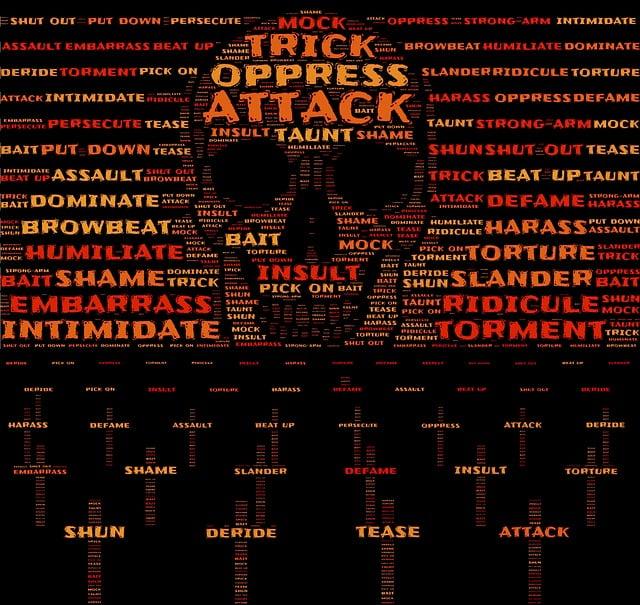In the heart of South Asia lies Pakistan, a nation boasting vibrant cultures, rich histories, and a resilience that has withstood the test of time. Yet, beneath the surface of this dynamic landscape, a potent and complex challenge persists: extremism. Over the decades, varied forms of religious and political extremism have not only tested the fabric of Pakistani society but have also cast a long shadow over its political stability and economic progress. As the world witnesses a landscape increasingly marred by radical ideologies, understanding the multifaceted impact of extremism on Pakistan’s stability becomes paramount. This article delves into the intricate web of influences that extremism weaves into the nation’s governance, social cohesion, and international relations, offering insights into a struggle that is as much about ideology as it is about survival. Through an exploration of historical contexts, recent developments, and potential pathways forward, we aim to shed light on the challenges and opportunities that lie ahead for Pakistan in its quest for a stable and inclusive society.
Exploring the Roots of Extremism and Its Societal Consequences
Understanding the complexities of extremism is essential to grasp how it thrives within societal frameworks, particularly in Pakistan. Factors such as poverty, political instability, and lack of education contribute significantly to the rise of radical ideologies. These elements create a breeding ground where extremist narratives can flourish, often appealing to disenfranchised individuals seeking identity and purpose. The impact is profound, leading to the emergence of militant groups that exploit vulnerable populations, manipulating them into adopting radical beliefs that culminate in violence and unrest.
The societal consequences of this extremism are alarming and far-reaching. Communities are frequently torn apart, with families grappling with the loss of loved ones or the transformation of members into combatants. This results in a cycle of fear and mistrust that undermines social cohesion. Additionally, the government often responds with heightened security measures, which can stifle civil liberties and breed further resentment. The following table outlines key consequences of extremism in Pakistan:
| Consequence | Description |
|---|---|
| Social Fragmentation | Communities divided along ideological lines, leading to strife and animosity. |
| Youth Radicalization | Increased recruitment of young people into extremist groups. |
| Economic Decline | A decline in foreign investment due to perceived instability. |
| Political Instability | Governments facing challenges from both extremists and public discontent. |

Evaluating the Economic Repercussions of Extremist Ideologies
The prevalence of extremist ideologies in Pakistan has profound consequences for its economy, disrupting not only societal harmony but also influencing various sectors vital for national growth. The shadow of extremism casts a pall over foreign investment, deterring investors who prioritize stability and safety in their endeavors. As a result, impacted areas may grapple with escalated unemployment rates, leading to increased poverty levels. This, in turn, fuels a cyclical nature of disenfranchisement where the youth, with limited opportunities, become more susceptible to radical narratives. Key economic sectors like tourism, agriculture, and manufacturing may also experience fluctuations in performance, ultimately contributing to a deteriorating economic landscape.
Moreover, the economic ramifications extend to government expenditures, as resources are diverted toward security and counter-terrorism measures rather than developmental projects. This creates a paradox where essential services such as education and healthcare suffer due to prioritization of security. The annual budget allocations reveal significant disparities, often favoring militarization at the expense of community welfare:
| Year | Security Expenditure (PKR Billion) | Education Expenditure (PKR Billion) |
|---|---|---|
| 2021 | 1,200 | 300 |
| 2022 | 1,350 | 320 |
| 2023 | 1,450 | 350 |
This misallocation not only stifles economic innovation but also perpetuates a cycle of instability, making it essential for Pakistan to recalibrate its focus. By addressing the core issues associated with extremist ideologies, the country can create a more favorable economic environment, fostering resilience and stability for its populace.

Strengthening Community Resilience Against Radicalization
Community resilience plays a pivotal role in countering radicalization, especially in a landscape as complex as Pakistan’s. By engaging local populations through educational initiatives, we can cultivate critical thinking and promote a culture of peace. Efforts must focus on the following key aspects:
- Education Programs: Implementing curriculum reforms that emphasize tolerance and diversity.
- Community Dialogues: Organizing forums for open discussion about extremism’s consequences and alternative narratives.
- Youth Empowerment: Providing skill development workshops that channel youthful energy towards constructive pursuits.
Moreover, cooperation between local law enforcement, civil society organizations, and community leaders is essential in reinforcing these initiatives. Open communication can help identify early signs of radicalization and ensure timely intervention. Collaborative frameworks may include:
| Collaboration Type | Objective |
|---|---|
| Community Policing | Build trust and facilitate information sharing. |
| Multi-Stakeholder Workshops | Address grievances and misconceptions. |
| NGO Partnerships | Leverage resources for broader outreach. |

Policy Recommendations for a Stable and Inclusive Pakistan
To foster a more stable and inclusive environment in Pakistan, policymakers must prioritize a multi-faceted approach that addresses the root causes of extremism. This involves not only enhancing security measures but also investing in education and community development. Key recommendations include:
- Reforming the Education System: Introduce curricula that promote critical thinking, tolerance, and diversity, while countering extremist ideologies.
- Community Engagement: Empower local communities through participatory programs that build social cohesion and resilience against radicalization.
- Economic Opportunity: Develop job training and entrepreneurship initiatives, particularly for youth, to mitigate the allure of extremist groups.
Furthermore, to ensure a holistic strategy, collaboration between government, civil society, and international partners is essential. This can be achieved through:
| Stakeholder | Role |
|---|---|
| Government | Policy formulation and implementation of security and educational reforms. |
| Civil Society | Grassroots awareness campaigns and monitoring extremist activities. |
| International Partners | Provide technical assistance and funding for programs addressing extremism. |
This collaborative framework must focus on building trust, promoting dialogue, and ensuring that all communities feel represented and valued within the national narrative. Addressing extremism is a collective responsibility that requires sustained commitment and innovative strategies reflecting the aspirations of all Pakistanis.
Future Outlook
As we draw the curtain on our exploration of extremism’s impact on Pakistan’s stability, we find ourselves standing at a complex crossroads. The intertwining threads of history, culture, and geopolitics have woven a narrative that is as rich as it is fraught with challenges. The shadows cast by extremist ideologies stretch far and wide, affecting not only the socio-political landscape but also the very fabric of daily life for millions.
Pakistan finds itself at a pivotal moment, ripe with opportunities for dialogue and reform, yet burdened by the weight of a tumultuous past. The path forward demands a concerted effort from all sectors of society—government, civil society, and ordinary citizens alike—to foster resilience and promote inclusivity. By harnessing grassroots movements, empowering diverse voices, and cultivating understanding among communities, the nation can begin to dismantle the barriers erected by intolerance and fear.
Though the road ahead may be fraught with difficulties, it also glimmers with possibilities. As Pakistan navigates the currents of extremism and strives for a more stable future, it is essential that we remain vigilant, informed, and engaged. Change is not merely an aspiration but a collective responsibility—one that calls for unity in diversity and a commitment to peace. In this ongoing journey, let us cast aside division and embrace the power of dialogue, steering toward a horizon where hope and stability flourish side by side.



